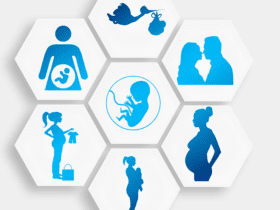Each person sees beauty differently, as the saying, “beauty lies in the eye of the beholder.” But what if there’s more than that.Â
According to a new study, the concept of physical beauty is somewhere in mind, determined by whatever features we may find attractive in others. Thanks to an AI program, scientists can now monitor our thoughts and even predict them. How is this possible?
Here is what you need to know.
Examing the Brain Waves and Finding Attractive Faces
A team of computer scientists and psychologists at the University of Helsinki in Finland ran a series of tests to identify what facial traits people might find attractive. The results ended up in an artificial intelligence program.
How they do it?
The team used EEG (electroencephalography) measurements and a machine learning system, dubbed GAN (a generative adversarial neural network).Â
The machine learning system first familiarized with what faces people liked. Then, it made new faces specifically developed to please the 30 volunteers who took part in the study. The results are genuinely intriguing.
The participants seemed like attending a huge Tinder session where they had to see a series of faces, which none of them was real people. But unlike the well-known Tinder experience, the volunteers had to wear elastic caps fitted with electrodes for brain measurements.Â

The results
All the measurements were fed to the GAN, which released data about the brain responses regarding how pleasant the viewer considered each artificial face.Â
Next, the GAN generated new faces based on people’s EEG attraction identifiers. The participants were asked to view and rate them. Alongside the new profiles were other images of randomly generated faces.
“Succeeding in assessing attractiveness is especially significant, as this is such a poignant, psychological property of the stimuli,” explained Michiel Spape, a cognitive neuroscientist.Â
Finally, the results confirmed the team’s survey. The volunteers rated the new faces as attractive in approximately 80 % of cases. As for the randomly generated faces, only 20 % of the time.
The recent project supports the AI systems and their intriguing way of working. Soon, they’ll become better at understanding what we think.Â













Leave a Reply